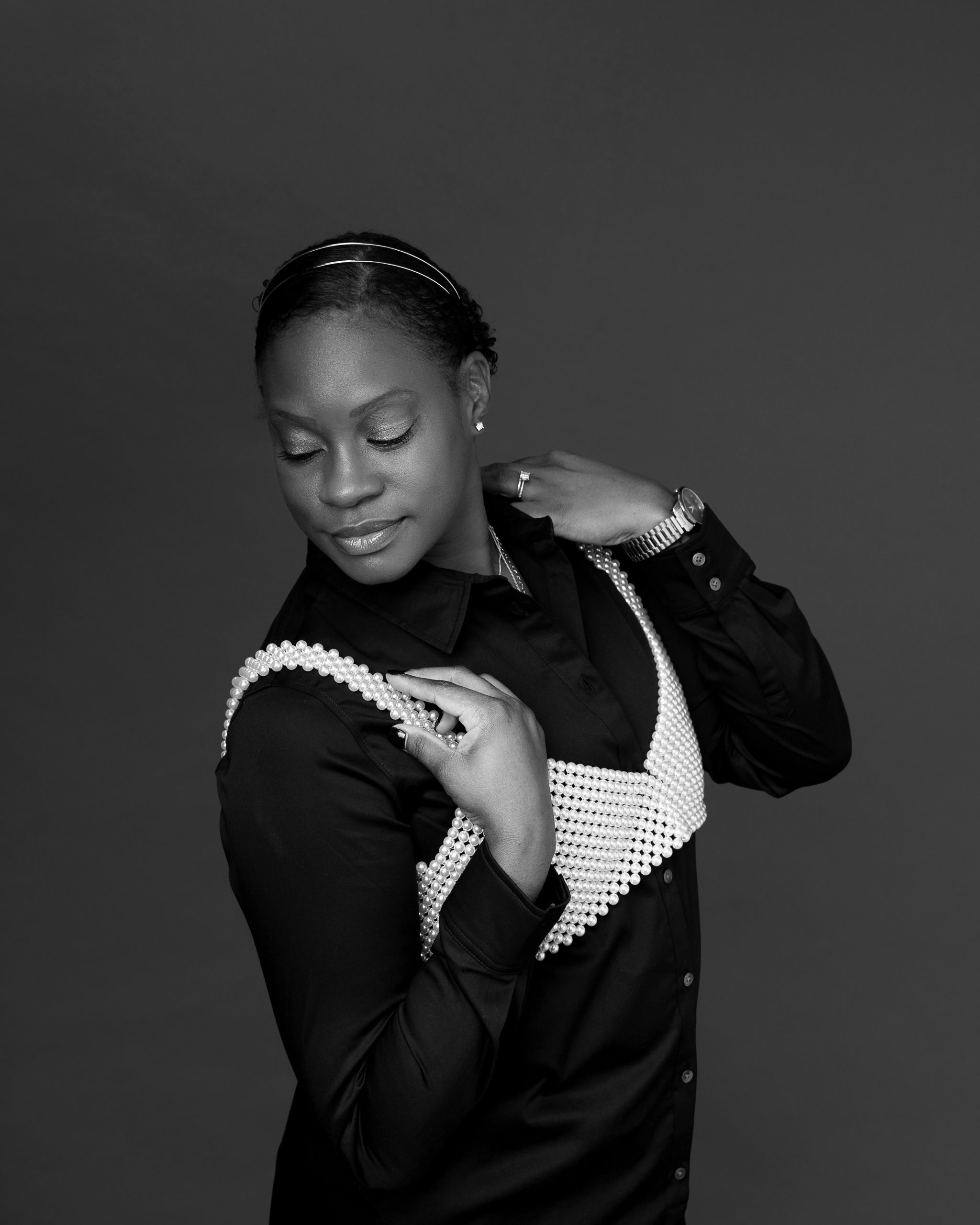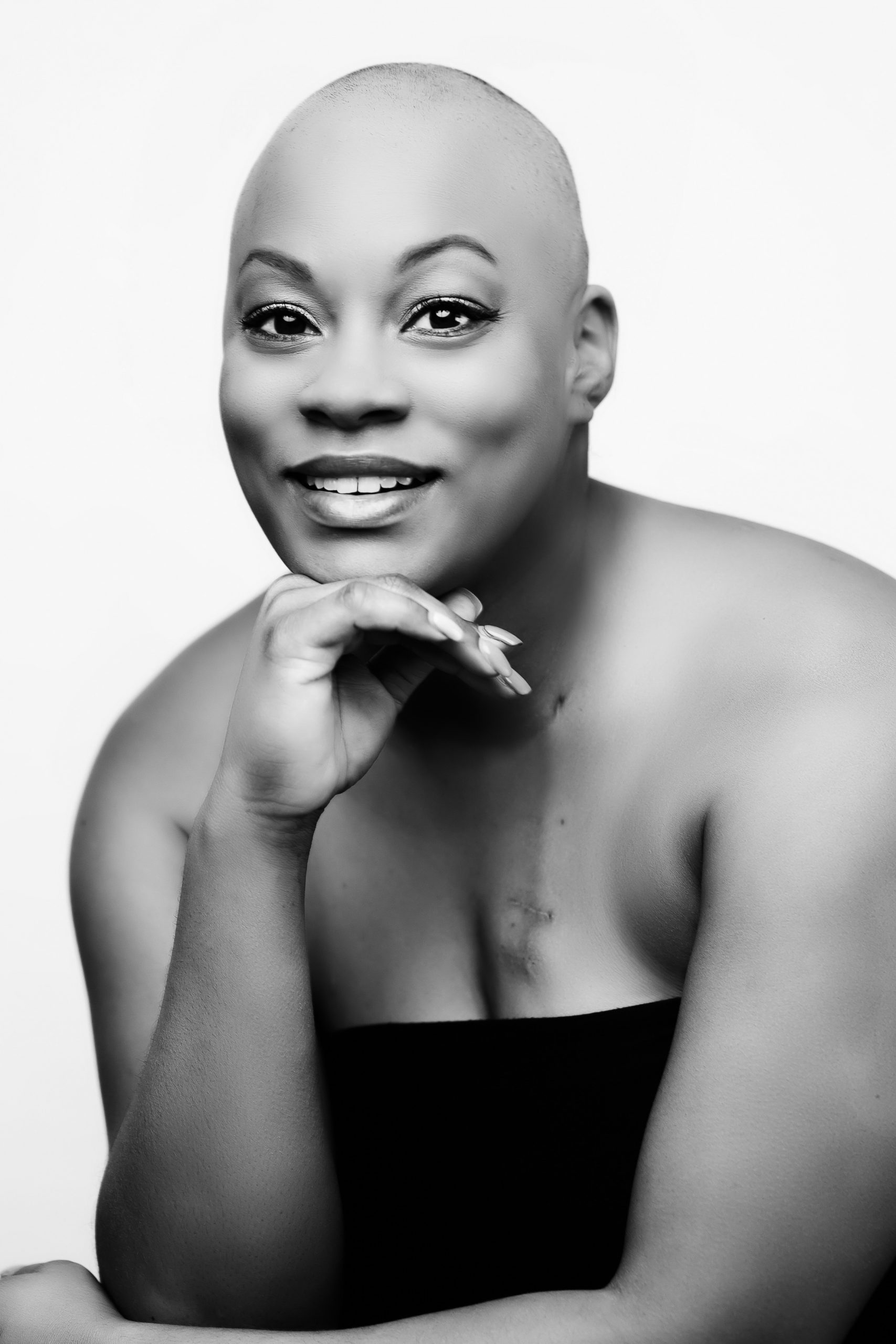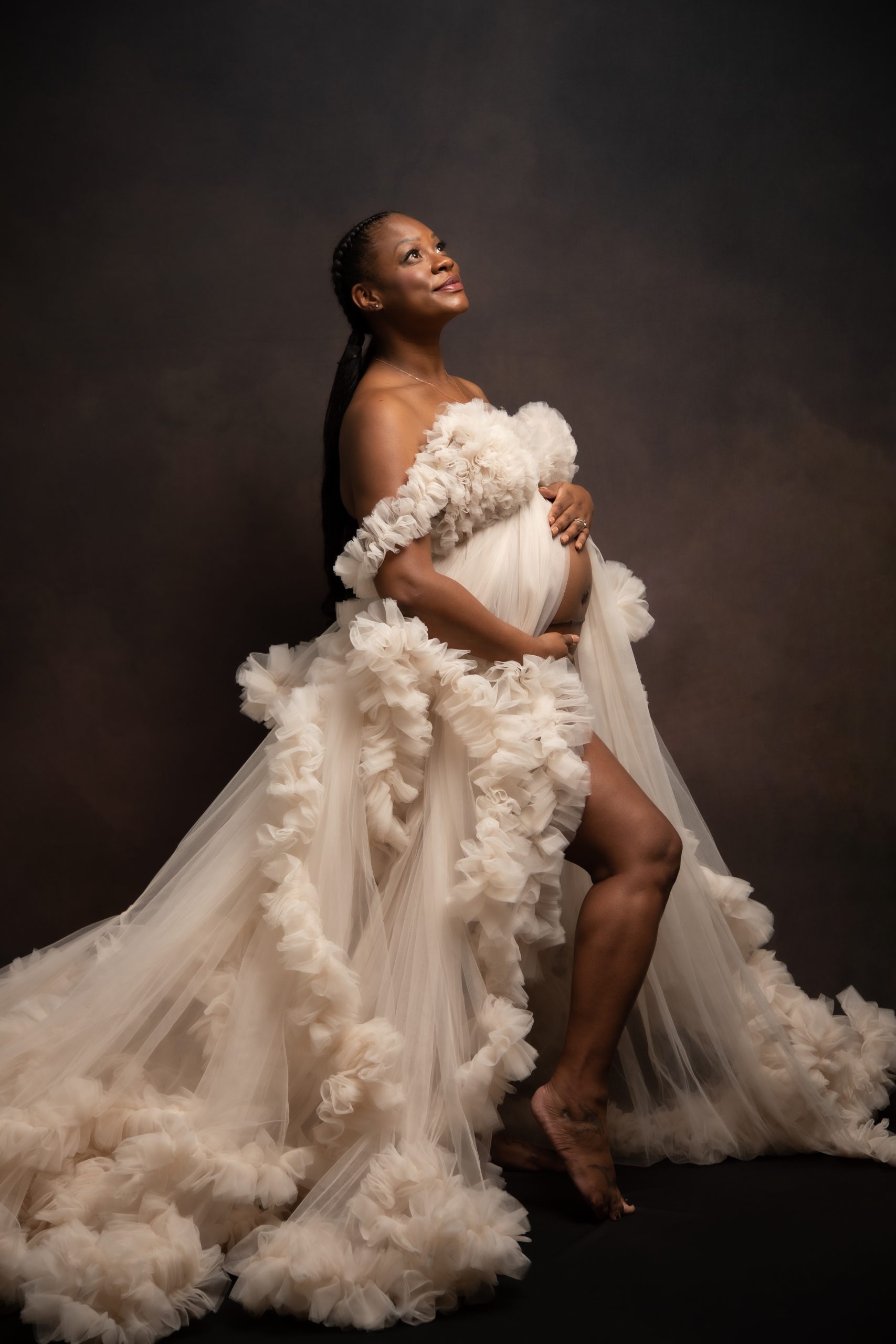Lauren Tarpley is about to give birth to her second child, which would be a wonderful moment for any parent, but Lauren knows how extra special this pregnancy is after fighting breast cancer.
She was diagnosed with breast cancer in 2020, during the pandemic. The diagnosis shocked the 34-year-old wife and mother, because she'd been led to believe her symptoms were nothing to worry about.
Read More
The doctor, she explains, did not even really look at her armpit, where she'd felt a persistent pain. That attitude towards her complaint made Lauren act decisively: "I felt dismissed. The moment I feel dismissed and not heard, I am on the way to get a second opinion," she says.
As it turns out, the pain in her armpit was her only symptom of what turned out to be stage 2 breast cancer.
Understanding Breast Cancer
It’s no wonder Lauren had a feeling her pain was more than an ingrown hair. It’s one of the early warning signs of breast cancer. Those symptoms can include:
- A lump in your breast or underarm that doesn’t go away
- New swelling in one breast
- Changes in the nipple (such as puckering)
- Redness or flaking in the breast or nipple
- Discharge (including blood) from the nipple
- Pain in the breast
It’s important to bring these changes or any concerning symptoms to your doctor promptly. And if you feel your situation is not being addressed appropriately, our experts encourage people to be persistent and/or seek second opinions.
To diagnose breast cancer, doctors will typically begin with a mammogram, ultrasound, or magnetic resonance imaging (MRI). If these tests suggest changes that might be cancer, you'll need a biopsya test in which your doctor removes a small sample of tissue and has it checked for cancer in a lab. Only a biopsy can confirm or rule out whether you have breast cancer.
If you do receive a breast cancer diagnosis, you'll get a lot more information along with itsuch as the type and stage of the disease. The stage means how far in your body the cancer has spread.

According to SurvivorNet's medical experts, you're more likely to develop breast cancer if you have one or more of these risk factors:
- You're older: Your risk for this cancer rises, the older you get. That doesn't mean that you're destined to get breast cancer as you age, or that young people are immune to it. You just need to be more vigilant about screenings as you get older.
- You have a gene mutation: Some women inherit changes to genes like BRCA1 or BRCA2, that increase their risk for breast cancer. Genetic tests can find these changes early, acting as an early warning for women to take preventive steps.
- You were exposed to estrogen for longer: Estrogen is a hormone that helps some breast cancers grow. Getting your period early (before age 12) or starting menopause late (after age 55), increases your exposure to this hormone.
- You waited to have children: Your risk may be higher if you waited to have children until after age 30, or you never gave birth. The risk is only slightly higher, meaning that you're not definitely going to get breast cancer, just because you waited to have children.
- You were exposed to radiation: Being exposed to radiation early in life; for example, during treatment for a cancer like Hodgkin's lymphoma, can increase your risk of breast cancer later in life.
- You have a family or personal history of breast cancer: Having cancer in your family, or going through treatment yourself, can make you more likely to be diagnosed.
WATCH: Talking to Your Kids About Cancer, Be as Open as You Can
The Risk of Being Misdiagnosed
It's a fact that misdiagnoses can happen.
Samantha Harris, of “Dancing with the Stars” and “Entertainment Tonight” fame, was diagnosed with breast cancer in March 2014 after several doctors told her the lump was not a cause for concern. Her visit to an OB/GYN resulted in the same thing: "She told me it was nothing," Harris told SurvivorNet.com. "A month later, I went to see my internist, only because it supposedly wasn't cancer. So I saw an internist who said it was nothing."
Being persistent about one's gut instincts is vital. Lauren Tarpley said when she insisted on a second opinion, "I felt like I had done myself a service. It also made me remember that doctor’s are human and unfortunately they make mistakes."
In a previous interview, Dr. Zuri Murrell told SurvivorNet, ""The truth is you have to be in tune with your body, and you realize that you are not the statistic." He explained that "it's important for you to actually educate yourself and be your own health care advocate."
Staying Strong
Tarpley was married, worked a job, and had a young son at home when she was diagnosed. Her treatment plan included several rounds of chemotherapy, immunotherapy, and radiation therapy.
In addition to the grueling treatment, Lauren also made the decision to have a double mastectomy, a medical procedure in which both breasts are removed to eliminate cancer. It's a decision some women make both to remove cancer as well as to prevent it from forming, if they are at a high risk of developing it – though it’s important to know that may not be the best treatment option in all cases. Your doctor will help you assess your uinique circumstances and the best path for you.
"A double mastectomy typically takes about two hours for the cancer part of the operation, the removing of the tissue," Dr. Elisa Port, Chief of Breast Surgery at Mount Sinai Health System, tells SurvivorNet.
How did Lauren stay strong? "During treatment, my strength was derived from a mixture of disbelief and knowing that I need to do this for my husband and my son," Lauren tells SurvivorNet. "My son was around a year and a half old when I was diagnosed so a lot of my strength came from wanting to be around to watch him grow."
"I would try to push myself further than the day before mentally and physically. I would at least go on a walk and make myself eat something, anything."
Helping Others Find Their Strength
Lauren is due to give birth to her second child a daughter very soon. Her advice to anyone who has recently been diagnosed with cancer is: "you can do this." She adds, "It is heavy and it’s a lot. You may know a lot about cancer but you will learn a lot in a short amount of time."

Being diagnosed with cancer can feel overwhelming, so Lauren, who admits to having a Type A, or a high-achiever, personality, suggests that patients keep records of all their test results and write down all details of their appointments and meetings.
"Only take on information at the pace that you know you can absorb it," she told SurvivorNet.
And, most of all, pace yourself, she suggests. And don't avoid your emotions, no matter how raw they may be.
"Don’t ever do more than you know you can handle because you don’t want to burn out. You will not get an award for handling it well, so take time to feel everything. If you don’t feel those feelings now, they will come back later."
In fact, Lauren has authored several books to help others cope with their new diagnoses and come out feeling positive and strong.
She shared how her writing career began: "I received a lot of journals as gifts when I was first diagnosed. Those were really helpful to write down things so I wouldn’t forget, due to ‘Chemo Brain,’ and also so I could journal my feelings to better process them."
“Chemo brain” is a term used by many cancer warriors to describe the mental fatigue and inability to process thoughts clearly — issues that are associated with chemotherapy treatments.
"Survivorship is mostly a mental battle," Lauren says, but she wanted her book to be practical and helpful. “Type A Guide to Cancer” is a collection of what she has learned, including tips for patients on how to navigate and handle their treatment every step of the way.
Learn more about SurvivorNet's rigorous medical review process.

